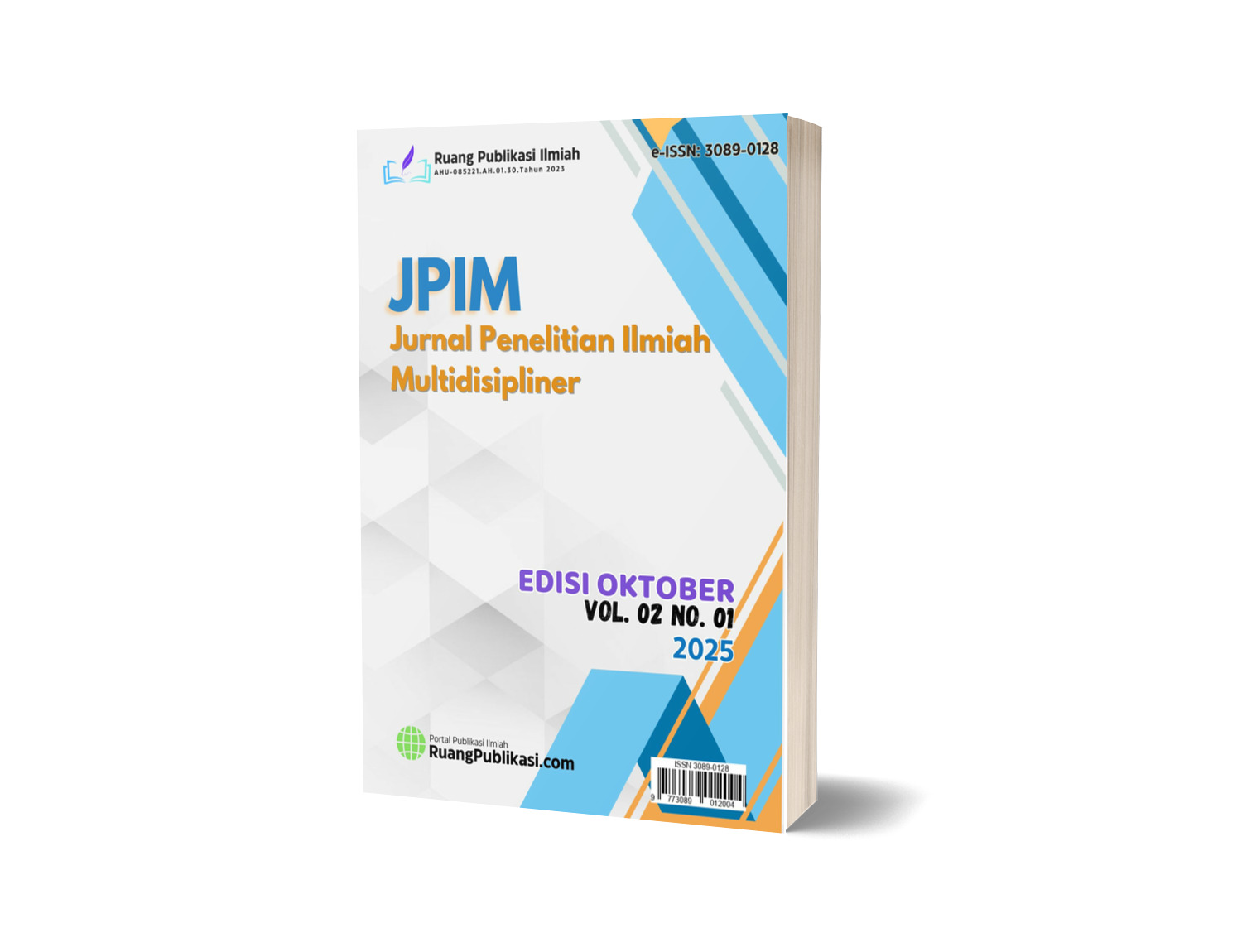Metode dan Model Pengembangan Gereja Berbasis Layanan Digital
Kata Kunci:
Metode, Pengembangan Gereja, DigitalAbstrak
Dalam lanskap teknologi digital yang berkembang pesat, pengembangan gereja telah merangkul metode dan model berbasis layanan inovatif untuk meningkatkan keterlibatan masyarakat, pertumbuhan spiritual, dan efisiensi operasional. Makalah ini mengeksplorasi berbagai pendekatan berbasis layanan digital yang dapat diterapkan gereja untuk menumbuhkan lingkungan yang lebih dinamis dan inklusif. Dengan memeriksa studi kasus dan praktik terbaik, kami mengidentifikasi strategi utama seperti layanan ibadah virtual, pembangunan komunitas online, dan inisiatif penjangkauan digital yang telah terbukti efektif dalam menjangkau beragam jemaat. Selain itu, kami menganalisis tantangan dan peluang yang disajikan oleh transformasi digital ini, menekankan pentingnya mengadaptasi praktik gereja tradisional untuk memenuhi kebutuhan orang percaya kontemporer. Pada akhirnya, penelitian ini bertujuan untuk memberikan kerangka kerja yang komprehensif bagi para pemimpin gereja yang berusaha memanfaatkan alat digital dalam upaya pengembangan mereka, memastikan pertumbuhan dan relevansi yang berkelanjutan dalam dunia yang semakin digital.
Unduhan
Referensi
Cooper, Laato S., Nenonen S., Pope N., Tjiharuka D., and Sutinen E. “The Reconfiguration of Social, Digital and Physical Presence: From Online Church to Church Online.” Hts Teologiese Studies-Theological Studies, 77(3), (2021).
Habisch. “Practical Wisdom for Social Innovation. How Christian Entrepreneurs Triggered the Emergence of the Catholic Social Tradition in Europe.” Springer, Cham. (2017).
Potgieter. “Digitalisation and the Church – a Corporeal Understanding of Church and the Influence of Technology.” STJ | Stellenbosch Theological Journal, 5(3), (2020).
Sircar, and Rowley J. “How Are U.K. Churches Using Social Media to Engage with Their Congregations. Journal of Public Affairs,” 1 (2020).
Miranda. “The Spirit of the Catholic Aggiornamento: Architecture, Dialog and Active Participation.” 4 (2015).
Ayton, Manderson L., and Smith B. “Barriers and Challenges Affecting the Contemporary Church’s Engagement in Health Promotion.” Health Promotion Journal of Australia, 28(1), (2017).
Washington, Weed L. D., and Vardaman S. A. “USING THE Internet TO INCREASE Physical Activity IN A FAITH COMMUNITY.” Journal of Christian Nursing : A Quarterly Publication of Nurses Christian Fellowship, 32(3), (2015).
J. R. Galang, and Macaraan W. E. R. “Digital Apostleship: Evangelization in the New Agora.” Religion, 12(2), (2021).
GGow. “Alternative Social Media for Outreach and Engagement: Considering Technology Stewardship as a Pathway to Adoption.” IGI Global (2020).
Jun. “Virtual Reality Church as a New Mission Frontier in the Metaverse: Exploring Theological Controversies and Missional Potential of Virtual Reality Church.” Transformation, 37(4), (2020).
Ugboh. “The Church and Techno-Theology: A Paradigm Shift of Theology and Theological Practice to Overcome Technological Disruptions.” Journal of Ethics in Entrepreneurship and Technology (2023).
Campbell, and Rule F. “The Practice of Digital Religion.” Springer VS, Wiesbaden (2020).
Díaz. “Considering the Efficacy of Digital Technology as a Means of Evangelization in Christian Religious Education.” Religious Education, 116(1), (2021).
Arthur, and Rensleigh C. “The Use of Online Technologies in the Small Church. SA Journal of Information Management” (2015).
Downie. “Building Partnership Between Church Interpreting and Bible Translation.” ournal of Translation, 19(1), (2023).
Mahan. “Congregation(s) in Digital Culture.” The Journal of Religion, Media and Digital Culture, 9(2), (2020).
Lim. “Ecologies of Faith in a Digital Age: Spiritual Growth Through Online Education.” Journal of Research on Christian Education, 28(1), (2019).
Nduyo. “Influence of Empowerment Programmes on Youth Retention in the Church; (the Case of Churches in Tigania East District, Meru County)” (2013). http://erepository.uonbi.ac.ke/handle/11295/56420.
Woodall. “The Pentecostal Church: Hospitality and Disability Inclusion. Becoming an Inclusive Christian Community by Welcoming Mutual Vulnerability.” The Journal of the European Pentecostal Theological Association, 36(2), (2016).
Mabwe, Dimingu C., and Siyawamwaya F. “The Church as a Social Enterprise: A Strategy for Economic Development.” International Journal of Scientific Research and Management (2018).
Hesse. “The Effect of Social Media on Church Management” (2019).
Oliver, Williams-Duncan S., and Kimball E. M. “Digital Literacies for Ministry: A Qualitative Study of Theological Educators Preparing Students for New Media Engagement” 7(1) (n.d.).
Reiss. Religious Diversity and Inclusive Practice. Routledge, 2016. https://doi.org/10.4324/9781315687766-7.
Tanniru, and Khuntia J. “Digital Leadership Through Service Computing: Agility Driven by Interconnected System and Business Architectures.” (2015).
Rossouw. “Inclusive Communities: A Missional Approach to Racial Inclusivity within the Dutch Reformed Church.” STJ | Stellenbosch Theological Journal 2 (2016).
Pasande, and Tari E. “Peran Gereja Dalam Pengembangan Program Kewirausahaan Di Era Digital.” 1 (2019).
Meadows. “Mission and Discipleship in a Digital Culture.” Mission Studies, 29(2), (2012).
Burge, and Williams M. D. “Is Social Media a Digital Pulpit? How Evangelical Leaders Use Twitter to Encourage the Faithful and Publicize Their Work.” The Journal of Religion, Media and Digital Culture, 8(3), (2019).
Manson, and Cordovés J. I. “Digitalfaith: Using Social Media for Professional Development.” Journal of College and Character, 19(1), (2018).
,Zaluchu. “Church Digitalization and the New Koinonia in the Era of the ‘Internet of Things.’” International Bulletin of Mission Research, 47(1), (2022).
Joubert, and Schoeman W. J. “An Exploration of the Use of Technology by Congregations.” 2016 (n.d.).
Hutchings. “Creating Church Online: Ritual, Community and New Media.” (2017). https://nottingham-repository.worktribe.com/output/1411502/creating-church-online-ritual-community-and-new-media.
Lappo, Soichuk R., and Akimova L. “Digital Technologies of Support the Spiritual Development of Students.” Information Technologies and Learning Tools, 88(2), (2022).
Pantou. Ecumenical Movement for Millennials: A Generation Connected but Not yet United. Hts Teologiese Studies-Theological Studies, 2017.








